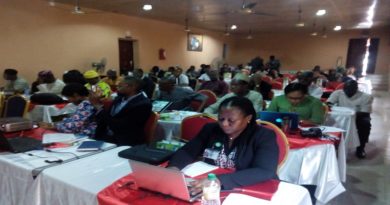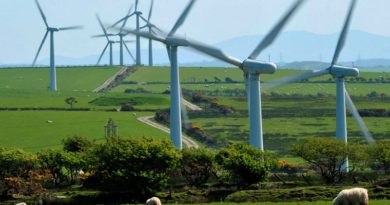World Environment Day highlights urgent need to tackle marine plastic pollution
Every year, 13 million tonnes of plastic leak into the ocean according to UN Environment, which leads the annual celebration on June 5th of World Environment Day (WED). This year’s theme is #BeatPlasticPollution and India is the host country, with states like Gujarat showing how they are taking on plastic pollution.
The Global Environment Facility (GEF) has long been committed to fighting pollution in our air, land and water, and has started to support more projects and initiatives that help tackle the growing menace of marine plastic pollution.
Most recently, the GEF endorsed a US$2 million project – with UN Environment, the Ocean Conservancy and the Ellen MacArthur Foundation – to work across the entire plastics value chain to minimize marine plastics. This project includes supporting the New Plastic Economy Initiative, which is an alliance of major companies that produce, process and use plastics, as well as governments seeking solutions to minimize plastics.
The issue will also be high on the agenda of the Sixth GEF Assembly in Da Nang, Vietnam next month with a series of high-level round table discussions covering the blue economy, the circular economy and a systematic approach to marine plastics.
Confronting this challenge requires addressing the entire plastic value cycle – material engineering, product and process design, consumer use and behavior, and collection systems and recycling. The round table at the GEF Assembly will discuss options and approaches for integrating efforts across the entire supply chain to mitigate threats posed by plastics in the ocean, including the need for partnership between government, the private sector and financial institutions at local to global scales.
“The ocean is everyone’s business, providing huge investment opportunities to promote sustainability,” said Naoko Ishii, GEF CEO and Chairperson. “We cannot secure our oceans’ future without the active involvement of the private sector, and it’s critical that new business opportunities and financing address major threats like over-fishing and pollution in a sustainable manner. From coastal fisheries and conservation funds to combating plastic pollution, the GEF is investing in a blue economy that delivers both environmental protection and jobs.”
A renewed mandate for GEF work on oceans
On April 25th, 2018, close to 30 countries jointly pledged US$4.1 billion to the GEF for its next four-year operational phase, known as GEF 7, during which the GEF will further increase its efforts to address marine plastics and other pressing ocean issues.
The GEF7 International Waters strategy has the objective of strengthening the blue economy approach through national action and regional cooperation. This will require sustaining healthy coastal and marine ecosystems, catalyzing sustainable fisheries management, and addressing pollution reduction in marine environments.
On occasion of the GEF replenishment, Erik Solheim, UN Environment Executive Director, said: “The GEF is a critical part of how we tackle the multitude of threats to people and planet. It’s about innovation, solutions and accountability. It’s also a key part of how UN Environment is able to deliver on its mandate — whether helping small islands adapt to the threat of climate change, manage dangerous chemicals or protect biodiversity. The world needs a strong GEF and donors must be thanked for their continued confidence and trust in the GEF Partnership!”
The GEF has been working for decades to protect our oceans. For 26 years, it has supported Partnerships in Environmental Management for the Seas of East Asia (PEMSEA). PEMSEA now includes 14 countries who work together to sustainably manage their coasts and oceans, encompassing some seven million square kilometers of shared sea, bordered by some 235,000 km of coastline.
The GEF has also been instrumental in setting up the pioneering Meloy Fund for Sustainable Community Fisheries, which provides debt and equity financing for businesses that have a positive impact on coastal fisheries in Indonesia and the Philippines.
Through its chemicals and waste focal area, the GEF has helped reduce, better manage or eliminate harmful chemicals likes ozone-depleting substances, Persistent Organic Pollutants, and mercury. Through its international waters work, the GEF protects transboundary water resources such as a groundwater aquifers, lakes, rivers, and marine ecosystems. The GEF has invested over US$1.14 billion in marine projects specifically, generating over US$7.7 billion from other funders to protects our coasts and oceans.
For World Environment Day, UN Environment launched a worldwide clean-up effort through the #BeatPlasticPollution tag toolkits, uniting hundreds of organizations and thousands of events taking place around the world with the shared purpose of bringing awareness to the issue of plastic contamination, and cleaning up our oceans for a healthy planet and people.
Courtesy: GEF



